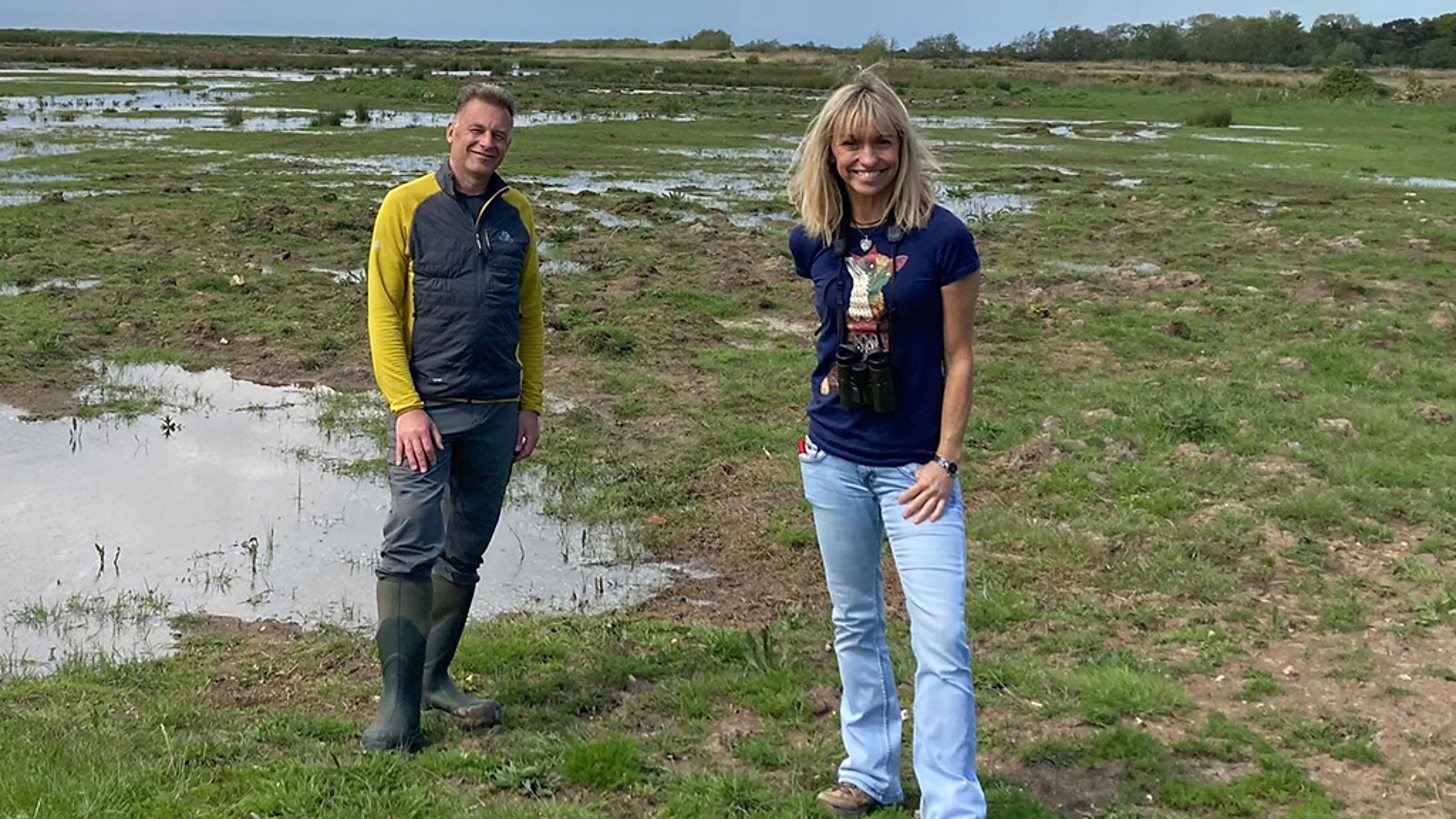
The TV Industry is integral to inspiring, educating and informing audiences. As the UK’s most commissioned producer and the largest distributor of content outside of Hollywood and Bollywood, BBC Studios takes this responsibility seriously. And we know that what we say onscreen must be accompanied by authentic, science-based activity offscreen or else we run the risk – as in so many industries - of greenwashing.
This is why we continue to embed sustainability at the heart of what we do.


At COP26 last November, many of the largest media brands including the BBC and BBC Studios, committed to the Climate Content Pledge. The Pledge recognises the important role that our industry plays to inspire and signpost positive solutions. During the past year BBC Studios has continued to normalise climate positive behaviour, whether through the EastEnders’ community fridge, DIY SOS’s use of solar panels or practical advice on how to adopt sustainable behaviours in Cook Clever, Waste Less. And we’ve considered it in the commercial short-form content we make too – such as the multi-award-winning Ghost Fishing brand film we created for Hyundai.
We’ve also looked to different types of formats to reach our audiences. Our co-produced ground-breaking immersive augmented reality experience The Green Planet AR Experience, powered by EE 5G accompanied the Natural History Unit’s series and covered multiple habitats, using interactivity to overcome ‘plant blindness’ and increase awareness and understanding. It reached 10,000 people of all ages, achieved an approval rating of 96% and evoked a common emotional response of curiosity as well as “joy”, “awe” and “wonder”. Around 65% of all attendees also intended to embark on onward learning journeys, and, strikingly, 99% of attendees left with high sustainability awareness.
And our industry knows that our messaging must be accompanied by action with integrity. At BBC Studios, we are committed to reducing our own carbon footprint, considering nature and helping others do the same. The BBC has adopted science-based net zero targets and BBC Studios is playing its part to support: an impressive 98% of our UK productions created carbon action plans again this year and their commitment to detail has been brilliant. In The Green Planet AR Experience, the set included recycled fabric which could be transformed into renewable energy and they achieved the sustainability rating of “Best” from ISLA. The teams at Silent Witness and EastEnders have worked on a pilot with an external partner to analyse their energy use at the most granular level – looking at everything from hairdryers to honeywagons. Understanding our consumption data ensures correct energy specifications and creates a power reduction pathway. The Watches (i.e. Autumnwatch, Springwatch and Winterwatch) continue to pioneer the use of hydrogen generators, Strictly Come Dancing reduced its fuel emissions by more than 80% and the Natural History Unit has recently created a small solar farm to power their camp and filming kit in Africa, working with local people and using indigenous materials. Last year’s Earthshot Prize ceremony, celebrating environmental pioneers from across the globe, came in at under five tonnes of carbon emissions: and was found to be an amazing 98% reduction on projections for an event of this kind. The team worked extremely hard to consider every single detail of this event from pre-worn clothing for the guests and locally-sourced vegetarian food, to low energy lighting and even the first ever pedal-powered performance on TV.
And it is not just about our productions: we’ve also been working closely with our licensees and suppliers, looking at our waste, reviewing our travel budgets and considering our buildings. Earlier this year we moved to a new location in Bristol and the new office has sustainability embedded into its very fabric. Its design meets leading industry standards, including having a Gold SKA award, and it takes nature as its inspiration, incorporating recycled fixtures and fittings, upcycled furniture and reclaimed wood.
The Film and TV industry is all about innovation and those working in the sector are embracing the drive towards net zero with their trademark creativity. We don’t yet have all the solutions. But when the BBC gifted the albert tool to BAFTA over ten years ago, we came together to consider our impact and we did that again last year in signing the Climate Content Pledge at COP26. It is heartening to see that the drive to improve and work together is not just still present but ever strengthening. This collaboration and creativity is our strength and I continue to be hopeful that as ambition continues to turn into action, together, we will play more than our part to address the global climate and nature depletion issues facing the world today.
END
About BBC Studios
BBC Studios is a commercial subsidiary of the BBC Group with profits (EBITDA) of £226 million on sales of £1.6bn (21/22). Able to take an idea seamlessly from thought to screen and beyond, its activities span content financing, development, production, sales, branded services, and ancillaries across both its own productions, and programmes and formats made by high-quality UK independents, with three-quarters of its revenues from non-BBC customers including Discovery, Apple and Netflix. Around 2,400 hours of award-winning British programmes made by the business are internationally recognised across a broad range of genres and specialisms, with brands like Strictly Come Dancing/Dancing with the Stars, Top Gear, Bluey and Doctor Who. BBC.com, BBC Studios’ global digital news platform, has 139 million unique browser visits each month.
BBC Studios | Website | Press Office | Twitter | LinkedIn | Instagram |
